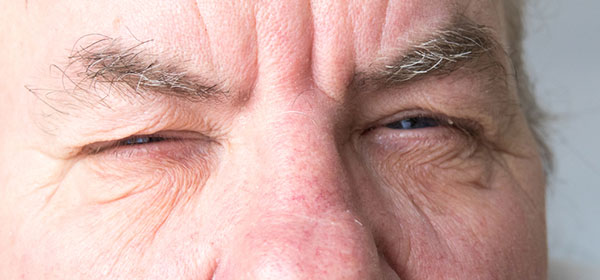Macular degeneration is a common eye condition that often manifests in people over 50 and can lead to vision loss or even legal blindness.
It’s the name given to a group of chronic, degenerative retinal diseases that cause progressive loss of vision to the macula (the centre) of the eye, but leaves peripheral vision largely intact.
This makes it difficult to read, drive, recognise faces and perform what should be simple daily activities. Macular degeneration, or age-related macular degeneration, is the leading cause of legal blindness (but not total blindness) and severe vision loss in Australia, accounting for around half of all cases.
Read: Find easy relief for eye strain
While genetics may play a part in your chance of developing macular degeneration, it doesn’t have to be an inevitable part of ageing.
Modifiable risk factors play an important role in the development of macular degeneration. You can boost your defences by not smoking, which can double your risk of the condition, and you can further bolster your armoury by maintaining healthy blood pressure and cholesterol levels.
Try to eat a healthy ‘eye’ diet high in nutrients from dark green leafy vegetables, seafood and fruits.
Also, follow these simple tips for protecting your eyes. You won’t be sorry you did.
Read: Eye scan can reveal early signs of Alzheimer’s
These suggestions will not only help to reduce the risk of macular degeneration, they are also great for promoting good health in general. As far as your eyes go, book in a regular annual eye test, eat well, exercise and drink plenty of water and green tea, and you’ll be seeing well into your later years.
Some nutritional supplements may also slow the progression of macular degeneration, but you should always discuss this and any other change to your health plan with a medical professional.
Recent studies have found success with AREDS2 supplements. These combination supplement capsules are made up of a specific group of vitamins, in specific amounts.
These vitamins are vitamins C and E, copper, zinc, beta-carotene, lutein and zeaxanthin.
Read: Age-related eye problem that could become a thing of the past
AREDS2 supplements can’t prevent early AMD from developing into intermediate AMD. If your eye doctor tells you that you have early AMD, get a dilated eye exam at least once a year so your doctor can keep track of any changes.
If you have late-stage macular degeneration in only one eye, AREDS2 supplements may slow down the progression of AMD in the other eye.
If you already have late-stage macular degeneration in both eyes, AREDS2 supplements probably won’t help.
And if you have concerns about macular degeneration, it may be time to see your local optometrist for an eye test.
Read more at www.mdfoundation.com.au
Do you have, or worry about, macular degeneration? Are there any tips you’d like to share with our members?
Health disclaimer: This article contains general information about health issues and is not advice. For health advice, consult your medical practitioner.

